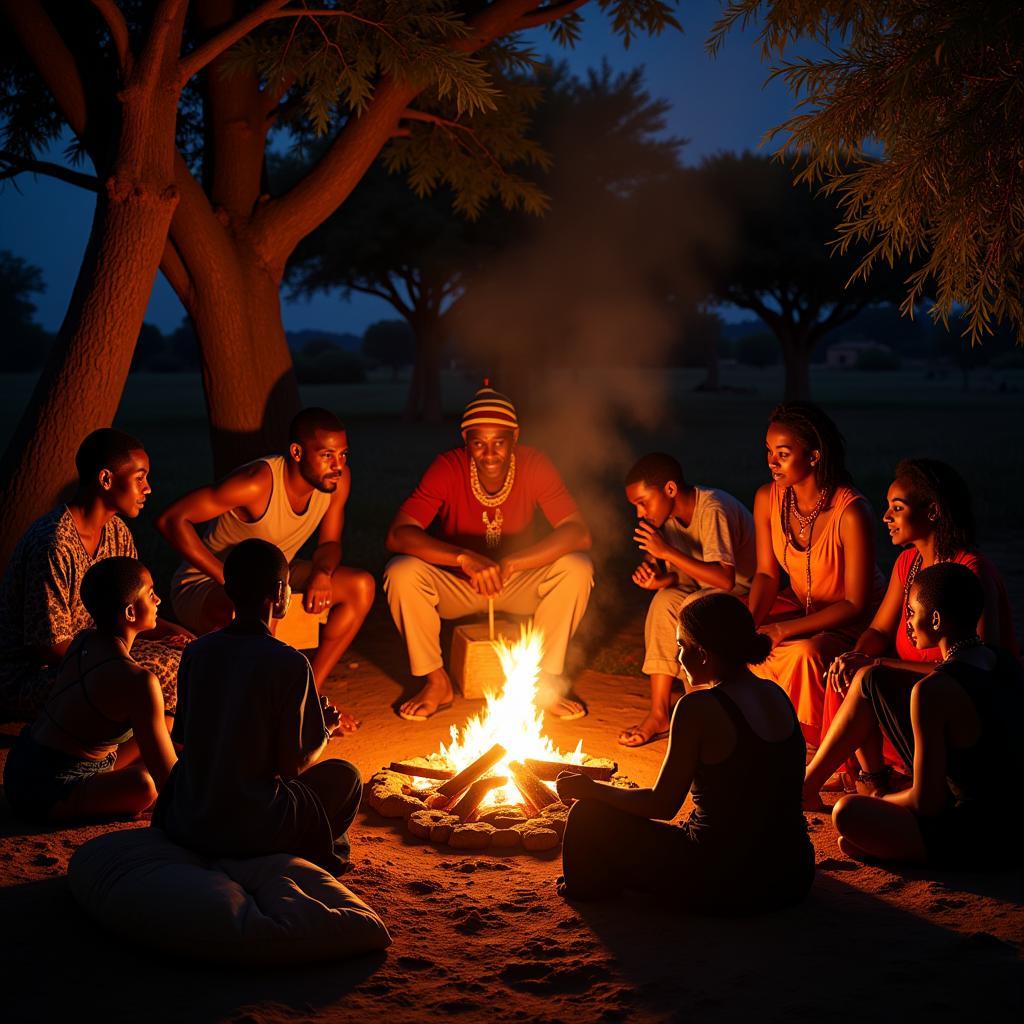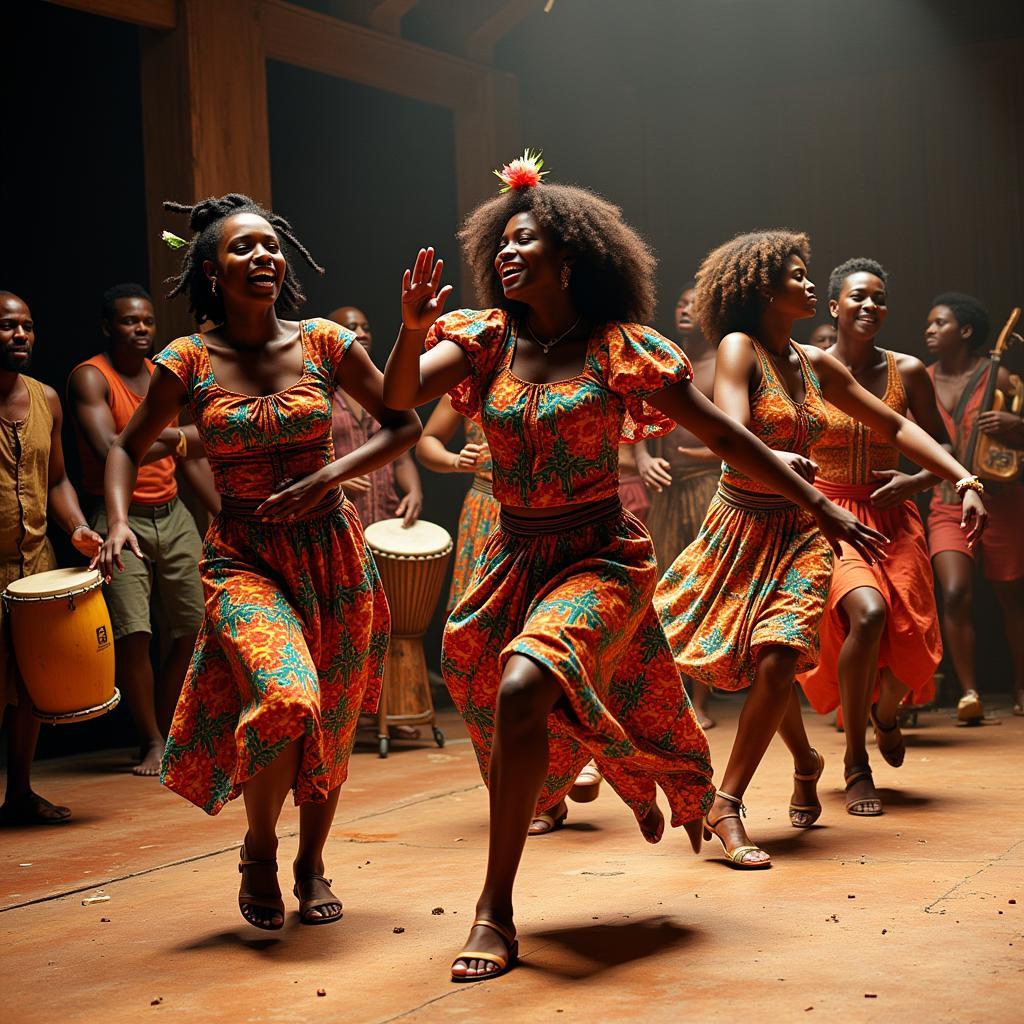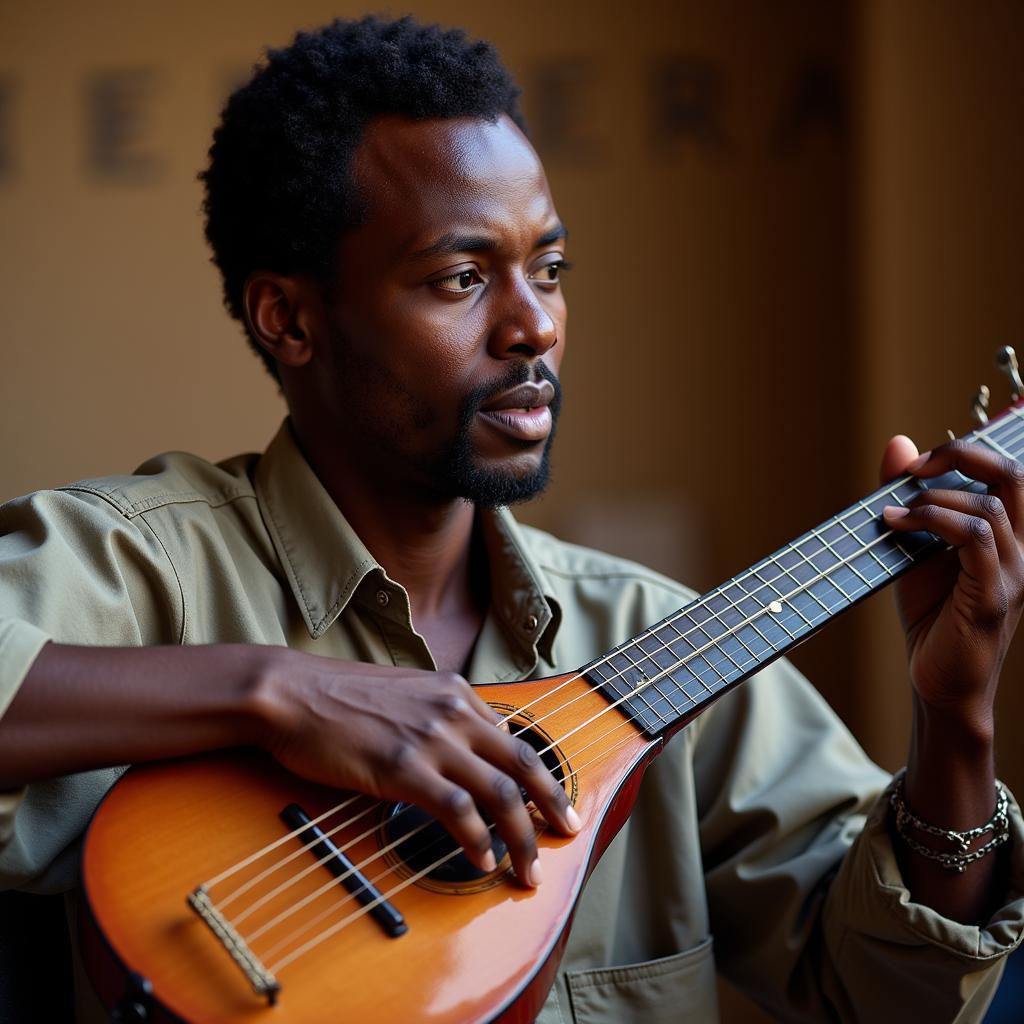Unveiling the Mysteries of the African 1st Stage of Literature
African literature, a rich tapestry of diverse cultures and traditions, stretches back centuries. While often categorized into pre-colonial, colonial, and post-colonial eras, understanding the “African 1st Stage Of Literature” requires a journey into the heart of orality. This period, predating widespread literacy, thrives on the spoken word, its power echoing through generations.
 African Oral Storytelling
African Oral Storytelling
The Power of the Spoken Word
Before the advent of writing, stories in Africa weren’t confined to the pages of books. They lived and breathed in the voices of griots, storytellers entrusted with preserving history, culture, and societal values. These masterful orators wove intricate narratives, their voices rising and falling with the emotion of tales passed down through lineages.
Imagine a moonlit night, the air thick with anticipation. A hush falls over the gathered villagers as the griot, adorned in vibrant fabrics and imbued with ancestral knowledge, begins their tale. This wasn’t merely entertainment; it was education, history, and spiritual guidance interwoven into captivating narratives.
Forms and Functions of Early African Literature
This first stage of African literature wasn’t limited to epic narratives. It encompassed a vast array of forms, each serving specific purposes:
- Proverbs: Pithy sayings offering wisdom and guidance, often used in everyday conversation to impart life lessons.
- Riddles: Engaging mental puzzles that entertained while sharpening wit and critical thinking skills.
- Myths: Tales explaining natural phenomena, often involving gods, goddesses, and supernatural beings, reflecting the spiritual beliefs of the community.
- Folktales: Stories featuring animal protagonists or ordinary people facing extraordinary situations, conveying moral lessons and societal values.
- Songs and Poetry: Musical expressions of love, loss, joy, and sorrow, often interwoven with historical accounts and social commentary.
 Traditional African Music and Dance Performance
Traditional African Music and Dance Performance
These diverse forms, often performed with music and dance, served as a unifying force, connecting communities and transmitting knowledge across generations.
The Enduring Legacy of Oral Tradition
While written literature gained prominence with increased literacy, the impact of the “African 1st stage of literature” continues to resonate. Oral traditions influence contemporary African literature, infusing it with vibrant imagery, rhythmic language, and a strong sense of community.
Modern African authors often draw inspiration from oral narratives, weaving folktales and myths into their works, preserving and reimagining age-old stories for a new generation. This blending of tradition and modernity ensures that the legacy of the spoken word continues to thrive in the African literary landscape.
Conclusion
The “African 1st stage of literature” represents a vibrant and essential foundation upon which the continent’s literary legacy is built. From the captivating tales of griots to the wisdom embedded in proverbs, this era reminds us of the power of the spoken word to educate, inspire, and connect across time and cultures. As you delve further into the world of African literature, remember that every written word carries within it the echoes of countless stories passed down through generations, a testament to the enduring power of orality.
For support, contact us at:
Phone Number: +255768904061
Email: [email protected]
Address: Mbarali DC Mawindi, Kangaga, Tanzania.
We have a 24/7 customer support team.


